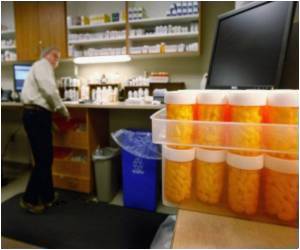Diabetes or lipid-lowering medications may play a key roles in the treatment of nicotine and alcohol addiction, revealed in a study.

These drugs work by binding to peroxisome proliferator-activated receptors (PPARs), with TZDs reducing insulin resistance and lowering the levels of cytokines that promote inflammation, and fibrates reducing low-density lipoprotein (LDL) and triglyceride levels and increasing high-density lipoprotein (HDL) levels to help prevent the development of cardiovascular disease.
Another effect of TZDs and fibrates is to raise leptin levels, an effect that may reduce appetite.
Recent studies also suggest that PPARs are expressed in the central nervous system, particularly in brain regions implicated in reward.
Now, the new studies have suggested that drugs that stimulate two different subclasses of PPARs, PPAR-? and PPAR-?, may play roles in the treatment of nicotine and alcohol addiction by acting in the brain.
The first study, by Mascia and colleagues, used a multi-pronged approach to demonstrate that nicotine's addictive effects can be counteracted by drugs that activate PPAR-a.
Advertisement
In the second study, Stopponi and colleagues used pioglitazone to evaluate its effects on alcohol drinking, relapse-like behavior, and withdrawal in rats. Pioglitazone activates PPAR-? and is an FDA-approved medication for the treatment of type 2 diabetes.
Advertisement
The studies have been recently published in Biological Psychiatry.
Source-ANI















